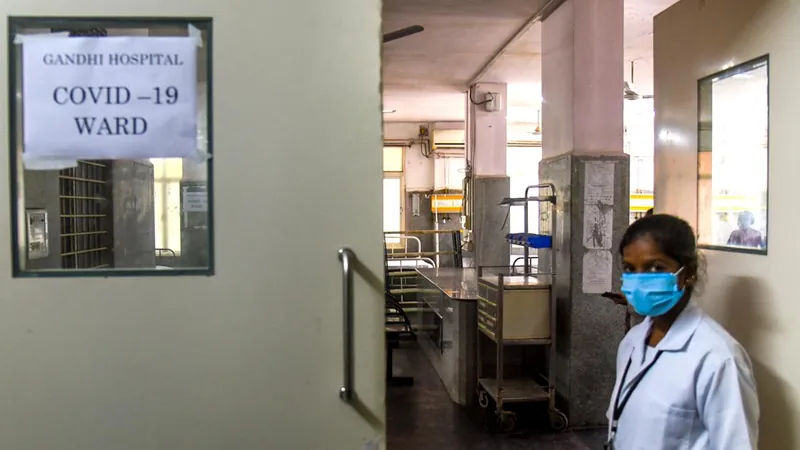
Beware of the JN1 COVID Variant: Flu-Like Symptoms Could Signal Serious Risk!
2025-06-06
Author: Mei
Kozhikode: A new wave of COVID-19 is sweeping through India, with active cases now at a staggering 5,364, fueled by 498 new infections reported in just the last 24 hours. Alarmingly, four fatalities have also been confirmed in this timeframe, primarily among seniors battling pre-existing health conditions.
As the nation grapples with nearly 5,000 active infections, the surge has been attributed to emerging variants like LF.7, XFG, JN.1, and the newly detected NB.1.8.1. With the JN.1 variant—a mutated version of Omicron—proving to be particularly troublesome, health experts are urgently advising people to take symptoms seriously and get tested promptly.
Is JN1 Just the Flu?
The JN1 variant can mimic common flu symptoms, such as sore throat, runny nose, fatigue, body aches, and mild fever. This similarity can lead to dangerous delays in treatment, allowing the virus to spread within families and communities. Ignoring these signs can have dire consequences.
What to Watch Out For!
Current symptoms of this COVID-19 variant are often mild and share resemblances with prior Omicron infections. However, some individuals may also experience prolonged low-grade fever, decreased appetite, or gastrointestinal disturbances. Experts stress that these signs warrant immediate testing, as early detection and isolation can be vital.
Expert Opinions on Testing and Symptoms
Dr. Rajesh Bendre, Chief Pathologist at Apollo Diagnostic, cautioned against underestimating the importance of testing. "Symptoms resembling common flu should not be brushed aside. Early testing can prevent a potential health crisis and allow timely isolation," he warned. The overlap in symptoms between JN1 and the flu complicates matters, making vigilance crucial.
The Science Behind JN1's Spread
Dr. Urvi Maheshwari from Zynova Shalby Hospital highlighted that JN.1 is a subvariant of Omicron BA.2.86 and is spreading rapidly in Asia. It carries additional mutations that could potentially help it evade immunity from past infections or vaccinations. While it appears less likely to cause severe illness than previous variants, its high transmissibility is concerning.
Precautionary Measures to Stay Safe!
Dr. Maheshwari emphasizes that prevention is key. Suggested measures include: - Regular hand sanitization - Maintaining social distance from sick individuals - Avoiding crowded areas - Disinfecting frequently touched surfaces - Practicing good hygiene and cough etiquette - Wearing masks while traveling, especially in confined spaces

 Brasil (PT)
Brasil (PT)
 Canada (EN)
Canada (EN)
 Chile (ES)
Chile (ES)
 Česko (CS)
Česko (CS)
 대한민국 (KO)
대한민국 (KO)
 España (ES)
España (ES)
 France (FR)
France (FR)
 Hong Kong (EN)
Hong Kong (EN)
 Italia (IT)
Italia (IT)
 日本 (JA)
日本 (JA)
 Magyarország (HU)
Magyarország (HU)
 Norge (NO)
Norge (NO)
 Polska (PL)
Polska (PL)
 Schweiz (DE)
Schweiz (DE)
 Singapore (EN)
Singapore (EN)
 Sverige (SV)
Sverige (SV)
 Suomi (FI)
Suomi (FI)
 Türkiye (TR)
Türkiye (TR)
 الإمارات العربية المتحدة (AR)
الإمارات العربية المتحدة (AR)